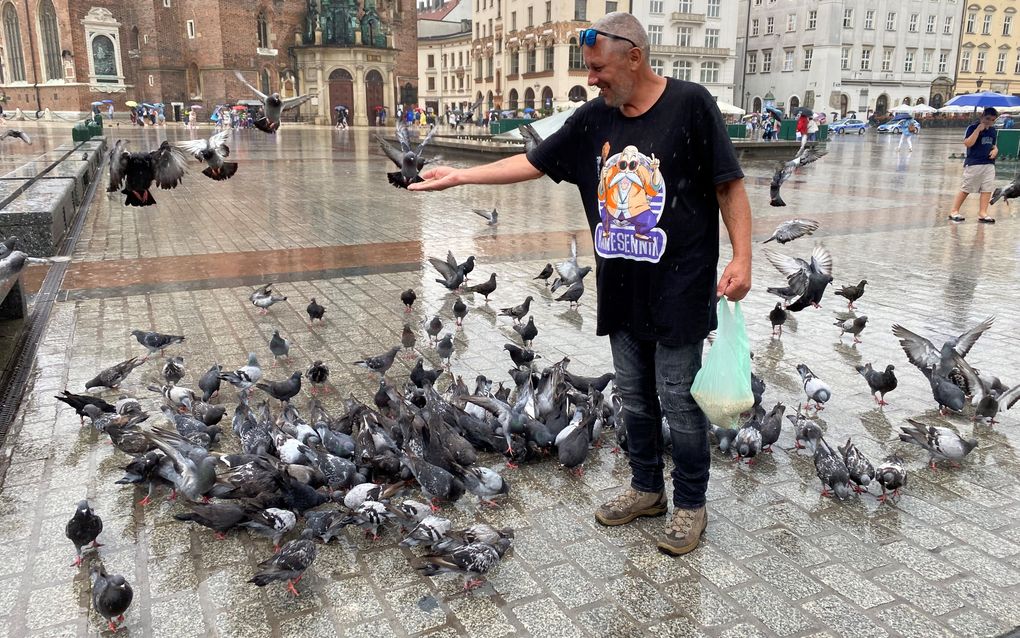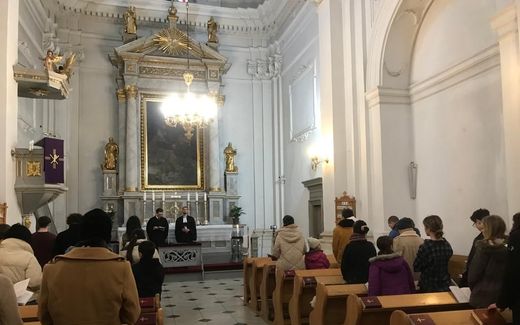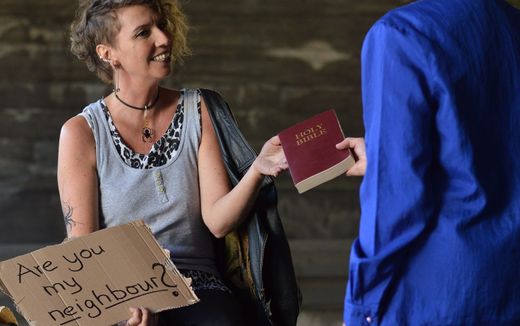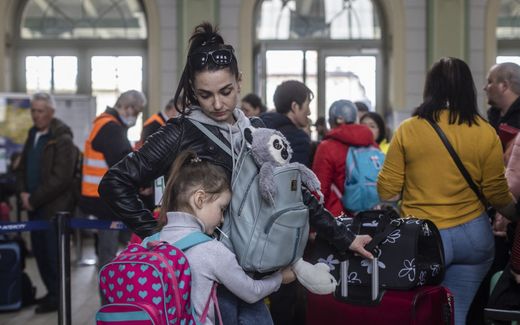Surviving brutal life on Krakow’s square

Marek Graczkourski on a rainy day in Krakow. Photo CNE.news
Central Europe
Last night, he only slept two hours. Actually, Marek Graczkourski (49) from Krakow has not rested more than three hours a night for four years. Life on the street drains his energy.
Although begging is illegal in Poland, Graczkourski is one of the tens of thousands of homeless people there. With the social system strained by Ukrainian refugees and the Covid pandemic, they feel even more excluded from society.
“This is my house”, he gestures towards the Market Square in Krakow. His bed is a portal of the Cloth Hall. The hundreds of picture-taking tourists, well-dressed businessmen and long-robed nuns passing by do not seem to notice his struggles. Yet, he is fighting to stay alive, 24/7.

The last time he was really happy is six years ago. Then Grackourski worked in construction. He lived with his wife and daughter. However, as things took a wrong turn, he spent two years in prison for theft. When he came back home, his wife had left him for someone else. His 17-year-old daughter lived in his house. She visits him once a week in the square.
Each night is a battle for Graczkourski. Not only because the uncomfortable cobblestones between the green garbage can and the iron gates of the Cloth Hall are his bed, but also because he must always stay alert.
There are many dangers to watch out for. Local gangs beat Graczkourski up several times already; incidents he would rather forget than tell anyone about them. Even when mentioning them, he spies to see if no one notices. Telling about the incidents could cost him his life, he whispers while making a cutting gesture with his hand at his throat.

The police station on the other side of the square is of no help either, Graczkourski sneers. “They arrest us for drinking a beer, but when we are killed, they turn a blind eye.”
Actually, police officers belong to the list of adversaries of the homeless. Some nights, Graczkourski falls asleep, only to be kicked out by a security officer. Grabbing his few belongings, Graczkourski then hurries to another portal. There he attempts to fall asleep again; until the ritual starts all over.
Between October and March, a refugee shelter offers protection from the freezing cold. However, Graczkourski gets no more sleep than in his portal, as tens of men are crammed on tiny mattresses, and theft abounds.
Pigeons
During the day, only pigeons seem to care about him. They gather around the Pole when he throws grains around him on the ground. The birds know him, just like he knows them. “This one will die soon”, he points to a pigeon hurled in the corner of a portal.
The birds are Graczkourski’s primary source of income, as he sells his pigeon food to tourists. On a good day, he makes about 95 zloty (20 euros).
Today is no success for Graczkourski. As raindrops pour from the gloomy sky, Graczkourski’s customers and birds scurry to surrounding stores, the Cloth Hall or the gothic Mariacka Basilica. Rain means no pay for Graczkourski, who himself finds shelter in the Cloth Hall as well.
Graczkourski struggles to look at the future. It is already an achievement for him if he makes it to the next day. Eight hours of sleep in a safe home seem to be unattainable. When asked what he needs to get back to a normal life again, he smiles despondently. “A house and some money. That way, I will be able to get more sleep and have the energy to find a job in construction again.” Yet, he does not see that happen anytime. “If you visit Krakow another time, I will be here.”
This article is part one of a diptych from Krakow
Related Articles






